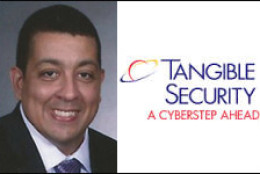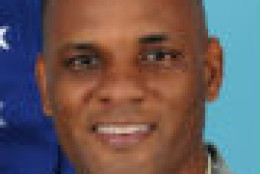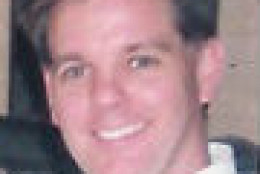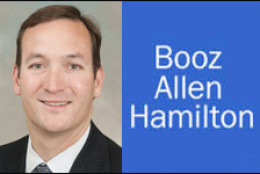Cybersecurity
-
Nov. 15 is the deadline for the Centers for Medicare and Medicaid Services to patch up the cybersecurity holes in the Healthcare.gov website. The Government Accountability Office offered 22 technical recommendations to the agency last week. Those problems appear just as the website nears its first birthday. Raj Sharma is co-founder and CEO of the Censeo Consulting Group. On the In Depth with Francis Rose Industry Chatter segment, he shared some ways to predict, and fix, longstanding problems with large federal IT projects like Healthcare.gov.
September 25, 2014 -
Allen Harper, vice president and chief hacker for Tangible Security will discuss how his company is helping federal agencies with their cybersecurity challenges. September 23, 2014
September 23, 2014 -
The Army has activated a new brigade, a cyber brigade, its first ever. The brigade is part of the Army's Cyber Command. The brigade will be divided into teams consisting of both soldiers and civilians. Their primary mission will be to conduct defensive cyberspace operations. Army Col. Donald Bray is commander of the Cyber Protection Brigade in Fort Gordon, Georgia. He joined Tom Temin on the Federal Drive to discuss the brigade's structure and mission.
September 23, 2014 -
The FBI will channel more people and resources into its Pittsburgh office. It's a reward for the cybersecurity team that's credited for catching five Chinese military leaders stealing trade secrets, and a Russian-based cyber crime ring that stole about $100 million from banks around the world. Michael McKeown is supervisory special agent for the Associate Division Counsel, part of the FBI Cyber Initiative and Resource Fusion Unit based in Pittsburgh. On In Depth with Francis Rose, he explained the cybersecurity effort that earned the extra resources.
September 19, 2014 -
Cybersecurity is emerging as a major business risk. USIS, the government's main contractor for security background checks, had a big contract canceled. A security breach exposed personal information about 25,000 Homeland Security employees. It doesn't matter that the company discovered and reported the breach itself. Kiersten Todt and Roger Cressey are former feds and now principals of Liberty Group Ventures. They joined Tom Temin on the Federal Drive to discuss strategies for not becoming the next USIS or Home Depot.
September 19, 2014 -
Marilyn Tavenner, the Centers for Medicare and Medicaid Services administrator, promised House lawmakers Thursday that the site would be better protected when open enrollment begins in two months. The recent attack on the HealthCare.gov didn't succeed in stealing any data, DHS says. But some lawmakers say a year into the Affordable Care Act, the website still has basic cybersecurity challenges that should have been fixed.
September 19, 2014 -
Ronald Pontius, the deputy to the commander of Army Cyber Command, said over the next few years the Army will give cyber workers their own career field, preliminarily known as Career Field 17.
September 18, 2014 -
The Army and Air Force are using a shared network security infrastructure at Joint Base San Antonio as of Sept. 14. It's a major step toward the Defense Department's goal of moving base-level cybersecurity operations to a more defensible, centrally-managed architecture.
September 18, 2014 -
The Army's new dedicated career branch for cyber specialties could be up and running as soon as October.
September 12, 2014 -
Booz Allen Hamilton Senior Vice President Brad Medairy, will discuss how Continuous Diagnostics and Mitigation (CDM) can help your agency meet its cybersecurity challenges. September 9, 2014
September 09, 2014 -
Despite news to the contrary, the Homeland Security Department has not picked a vendor to provide the CDM dashboard. This post is part of Jason Miller's Inside the Reporter's Notebook feature.
September 08, 2014 -
Evan Lesser, founder and director of ClearanceJobs.com will discuss how cleared professionals should be dealing with social media. September 5, 2014
September 05, 2014 -
Both the Army and Air National Guard say they are making inroads toward gaining a foothold for their state-based forces in the Defense Department's growing mission sets in cyberspace. Both services say they are training more personnel and building the guard's credibility within the Pentagon when it comes to cyber missions.
September 03, 2014 -
Former GSA official Dave McClure left government in June and now is an executive at the Veris Group.
September 02, 2014 -
The Environmental Protection Agency can't keep track of the data it stores in the cloud. EPA's Inspector General says it a subcontractor for a water permit system was using a cloud system to run its share of the operation, but neither the agency nor the prime contractor was aware of it. Albert Schmidt is an IT auditor of Information Resources Management and audits for the EPA's Inspector General. He says this type of cybersecurity problem isn't entirely the agency's fault.
August 28, 2014









